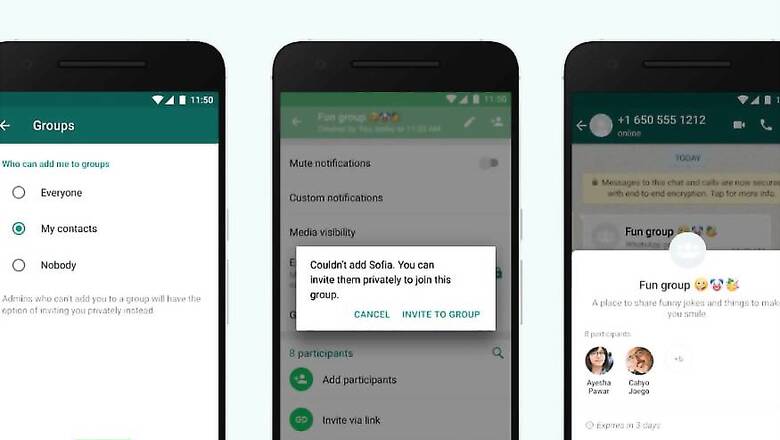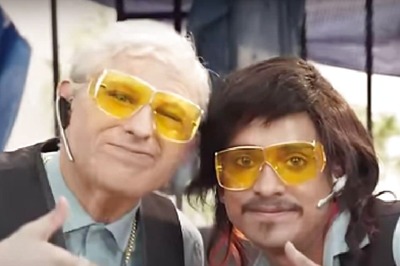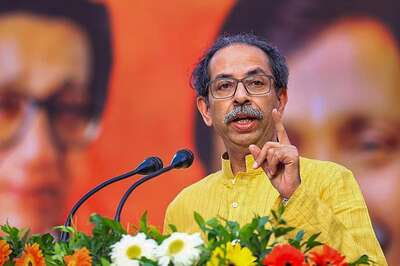
views
The Telecom Regulatory Authority of India (TRAI) suggests that they will finalize their views on the regulation of over-the-top (OTT) communication services in India, by the end of May. This comes after the TRAI had confirmed in January that they would be finalizing the guidelines that would regulate OTT based communication services within the next few months.
The services that will be categorized under the OTT umbrella include popular instant messaging apps such as WhatsApp, Facebook Messenger, Skype and Google Duo. By May-end we should be able to formulate our recommendation or regulation on the matter," TRAI chairman RS Sharma in an interview with the PTI. Parallels can perhaps be drawn with the Electronic Communication Code which dictates OTT services in the European Union. The code was published by the European Union in December, and must be implemented by December 2020. The ECC clearly states that “electronic communications services such as voice telephony, messaging services and electronic mail services are covered by this Directive.” This means that messaging apps that rely on the mobile connectivity will also be regulated as per the same guidelines that regulate the mobile network services.
Under the European rules, there is a clear distinction between number-based OTT services (such as WhatsApp) and number-independent OTT services (such as Facebook Messenger). The regulations say all OTTs must essentially adhere to the same the end-users protection obligations and security requirements as service providers. One of the critical requirements is the obligation to notify regulators and users in case of a data security breach. For the users, the regulations dictate transparency for aspects such as contractual information, pricing of service and quality and notice for termination. Interestingly enough, the Electronic Communications Code has also factored in the possibility that at some point of time in the future, the regulators may make it mandatory for OTT services to offer interoperability. This perhaps puts into perspective as to why Facebook is attempting to break down the walls between its own messaging services, Facebook Messenger and WhatsApp, since there are chances more regulators globally could demand interoperability.
While the ECC talks about a lot of other aspects, including pricing, bandwidth, universal service obligation, quality of networks, aggregation, cross border communication and data privacy, it will be interesting to note how the TRAI utilizes that knowledge in the future.
However, the ECC also clarifies, “It is necessary to separate the regulation of electronic communications networks and services from the regulation of content.” The directives therefore do not cover the content of services delivered over electronic communications networks using electronic communications services, such as broadcasting content, financial services and certain information society services.
In November last year, the Telecom Regulatory Authority of India (TRAI) initiated a consultation to explore the regulatory framework for OTT apps such as WhatsApp, Facebook and Google Duo that provide calling and messaging services similar to that by mobile operators. TRAI also sought public opinion on whether the same rules should be applied to OTT applications as are applied to telecom operators. This has been a long-pending demand of telecom operators.
Earlier, the mobile operators' association COAI had said the highly taxed telecom industry, which also invested heavily in licence fee, spectrum, telecom equipment and security apparatus, is on an "unequal footing with unregulated OTTs" that offer similar voice, video and data services without regulatory cost. In its written submission to the regulator, the Cellular Operators' Association of India (COAI) said the OTT players should be licensed by introducing 'OTT Communication Authorisation' under the unified licence. Batting for the 'same service, same rules', COAI said that in case similar obligations are not applied to OTT players, a new set of rules or obligations should be adopted for the telecom service providers also.
Players such as WhatsApp and Facebook have come under the scrutiny of policymakers over issues including data breach and fake news, and any new regulation or licensing requirement is expected to increase pressure on such platforms. But it’ll be interesting to see how the new regulations also categorize content being shared on these OTT apps and services.




















Comments
0 comment